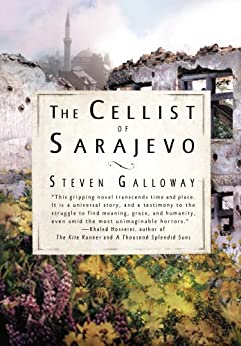More on this book
Community
Kindle Notes & Highlights
That something could be almost erased from existence in the landscape of a ruined city, and then rebuilt until it is new and worthwhile, gives him hope.
The fingers on his flesh told him that he was loved, that he had always been loved, and that the world was a place where above all else the things that were good would find a way to burrow into you.
It’s a rare gift to understand that your life is wondrous, and that it won’t last forever.
You don’t choose what to believe. Belief chooses you.
Sarajevo was a great city for walking. It was impossible to get lost. If you didn’t know where you were, you just went downhill until you hit the river, and from there it would all be obvious. If you got tired you could sit in a café and have a coffee, or, if you were hungry, stop at a small restaurant for a meat pie.
But if a city is made anew by men of questionable character, what will it be?
There are no grand moments where a person does or does not perform the act that defines their humanity. There are only moments that appear, briefly, to be this way.
It isn’t important whether she understands what he’s doing or why he’s doing it. She does understand it’s important, and that is enough.
But perhaps the only thing that will stop it from getting worse is people doing the things they know how to do.
“I’m afraid, Dragan. I’m afraid of everything, of dying, of not dying. I’m afraid that it will stay like this forever, that this war isn’t a war, but just how life will be.”
Do you face the terror that must come with knowing you’re about to die for the sake of one last glimpse of life? Dragan is surprised to find his answer is yes.
The music demanded that she remember this, that she know to a certainty that the world still held the capacity for goodness. The notes were proof of that.
At four o’clock in the afternoon on May 27, 1992, during the Siege of Sarajevo, several mortar shells struck a group of people waiting to buy bread behind the market on Vase Miskina. Twenty-two people were killed and at least seventy were wounded. For the next twenty-two days Vedran Smailović, a renowned local cellist, played Albinoni’s Adagio in G Minor at the site in honor of the dead. His actions inspired this novel,


